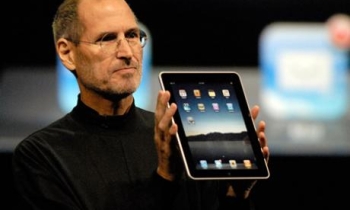When Michael Kinsley started Slate in 1996 he had a vision of people printing it out to read. Little did he know that 10 years later the idea of printing out something online would be as old-fashioned as, well, paying to read news.
Kinsley reckoned that he had a new business model. If you didn't have to pay production, paper or distribution costs, then the magazine would quickly become profitable. Time and Newsweek would soon be out of business.
He approached a university acquaintance, Steve Ballmer, and suggested that his company, Microsoft, should start such a publication. Slate "magazine" - they insisted on calling it a magazine - was born. Ten years later, Slate is somewhere between old media - that's the thing you are reading now - and the blogosphere.
It's quality journalism with a light touch - the internet frees it from the bland worthiness that infects much of mainstream American journalism. These days it is owned by The Washington Post company, which also publishes that magazine Kinsley thought he could drive out of business, Newsweek.
For its 10th anniversary, it hosted a forum on the future of journalism. Although he was ostensibly representing the old media, Norman Pearlstine, the former editor-in-chief of Time Inc and executive editor of The Wall Street Journal was the most pessimistic of all the participants, saying the business models for all quality journalism were under huge stress. The three traditional strengths of newspapers were their timeliness, being publications of record, and being a vehicle for transactions through classified ads: the net did all three better, he said.
The problem was not that people didn't want to buy newspapers, but that advertisers had discovered that search engines were a better way to get to buyers. Without advertisers, newspapers would find it difficult to finance journalism.
Papers in the future might be more opinionated, like English newspapers, reacting to what was happening online and readers could be a niche audience. Video might be the dominant form of online media. But Malcolm Gladwell, author of The Tipping Point: How Little Things Make a Big Difference, said that the death of newspapers might be as accurate as predictions of the paperless office.
He likened newspapers to the airline industry. The airlines all lost money, but everybody else, aircraft manufacturers, airports, hotels, pilots and passengers, all got something out of the industry. The problem is that, like the airlines, newspapers had to properly price their product.
Arianna Huffington, founder of one of the web's most popular blogs, the HuffingtonPost.com, predicted that newspapers would not go out of business because there would always be enough rich people to buy them. They would become like $50 million Picassos; trophy assets, to which Michael Kinsley remarked that, unlike a painting, a loss-making newspaper was the gift that kept on taking.









